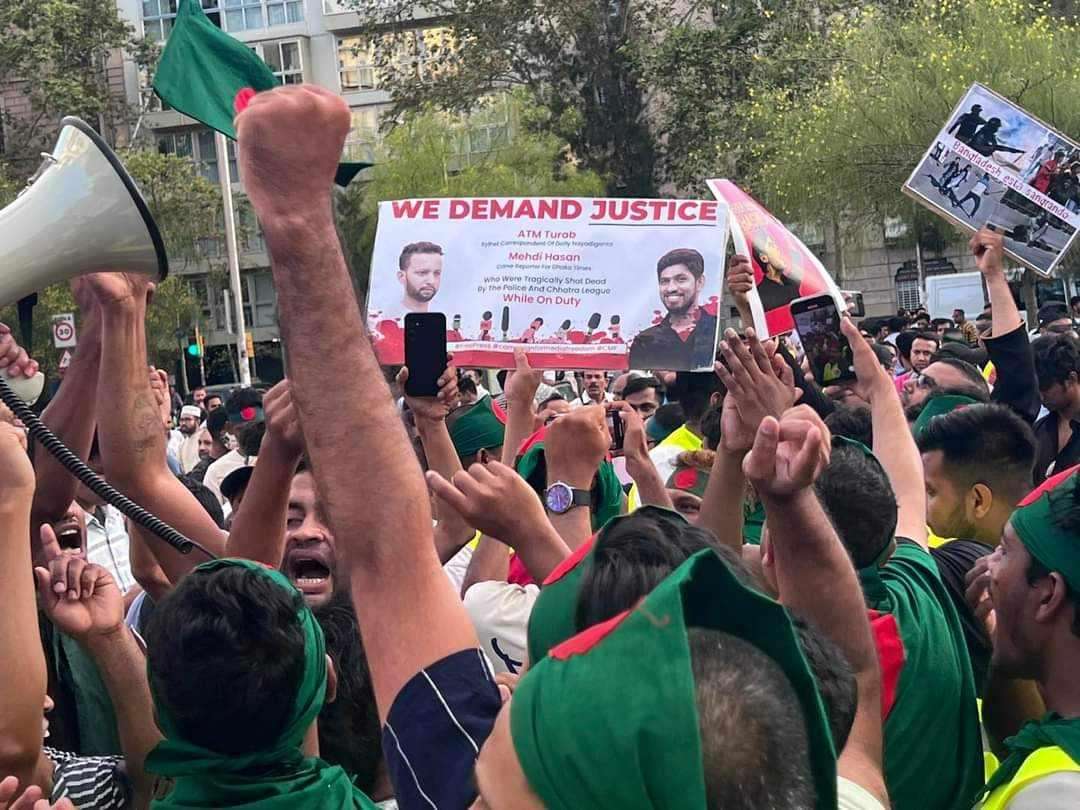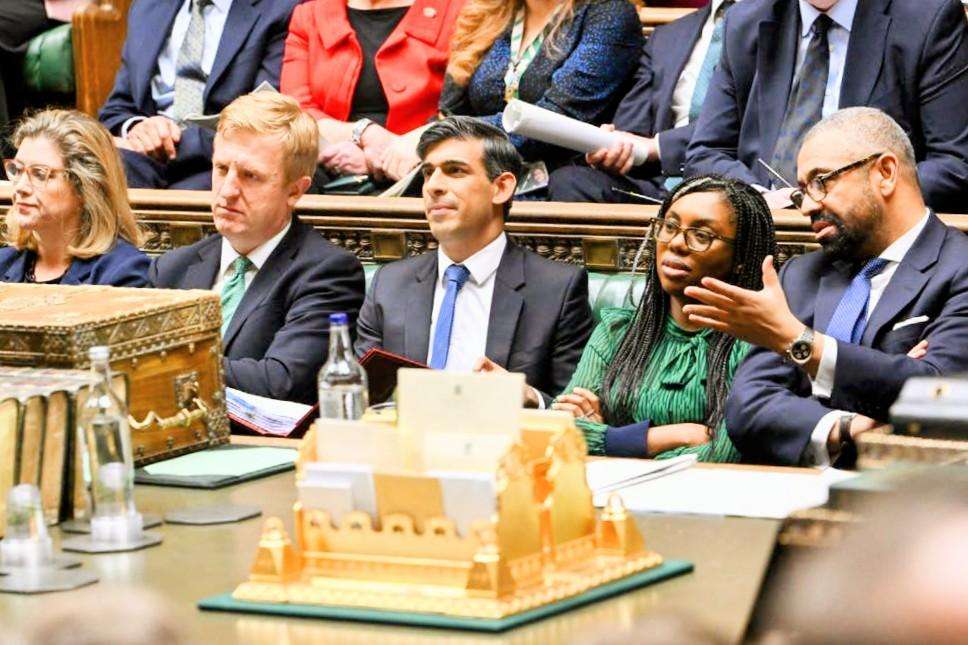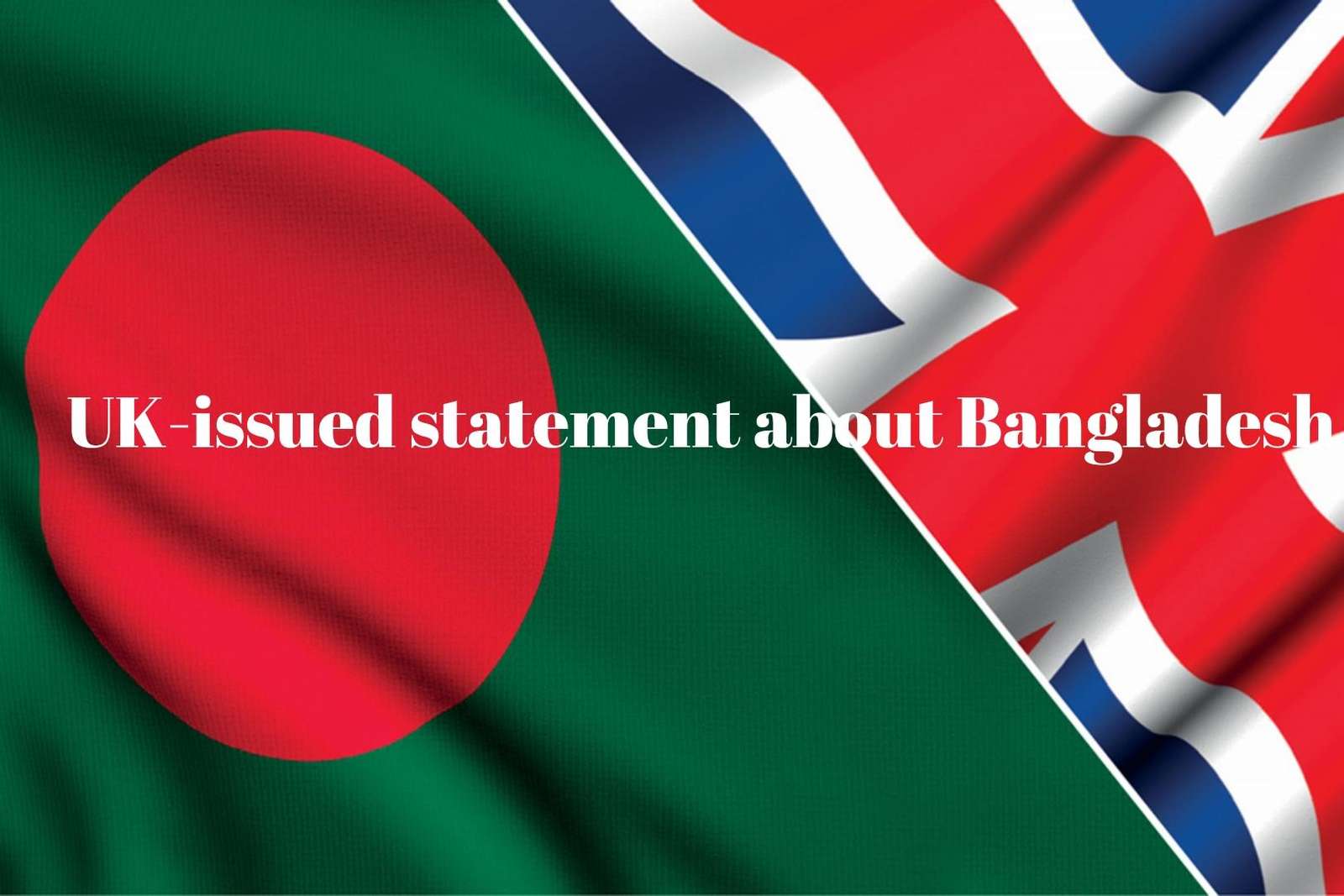The quota reform and anti-discrimination student movement in Bangladesh has garnered global attention over the week. The movement, which has seen widespread violence, resulted in the deaths of over 200 students, workers, and civilians at the hands of police, the BGB, and the RAB.
In response to the escalating situation, the Bangladesh government has deployed the army and imposed a curfew in an attempt to quell the protests. Opposition parties, including the BNP and Jamaat, have labeled the government's actions as genocidal and called for its overthrow.
The movement has found solidarity among Bangladeshi expatriates in Europe. For seven consecutive days, expatriates in cities across England have protested, displaying various placards in support of the movement. France has also seen significant demonstrations; thousands gathered at the historic Republic Square in Paris over the weekend to protest against the Bangladeshi government and support the student movement.
In Spain, a large protest was held in Barcelona's Plaza University on Sunday, organized by former Bangladeshi students and led by coordinator ABM Mazharul Islam. The demonstration saw significant participation from men, women, social organization leaders, and political party leaders. Concurrently, a protest in Madrid condemned the killings of journalists Abu Taher Mohammad Turab and Mehdi Hasan by police while covering the violence in Bangladesh.
Notably, the Catalonia Jubo League in Barcelona claimed that the violence in Bangladesh was fueled by BNP and Jamaat. Spain's Awami League echoed similar sentiments during a protest meeting in Madrid. Despite these claims, the anti-government movement has seen broad participation from general expatriates, including women and children.
Protests have also spread to other European countries, including the Netherlands, Portugal, Finland, Scotland, Ireland, Italy, and Germany. Demonstrators have gathered at Bangladeshi embassies and key locations to voice their demands.
The expatriate movement's key demands include restoring virtual connectivity for the two crore expatriates with Bangladesh, lifting the curfew, holding accountable those responsible for the killings of students, and banning the Chhatra League, labeling it as a terrorist organization. They also called for the resignation of the Home Minister and the prosecution of Awami League General Secretary Obaidul Quader for the killing of Abu Saeed, a student from Begum Rokeya University.
In a significant legal development, the Supreme Court of Bangladesh's appeal division has overturned the High Court's decision to restore the quota system, ruling in favor of the general students.








.svg)


